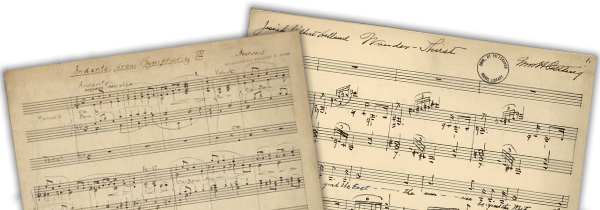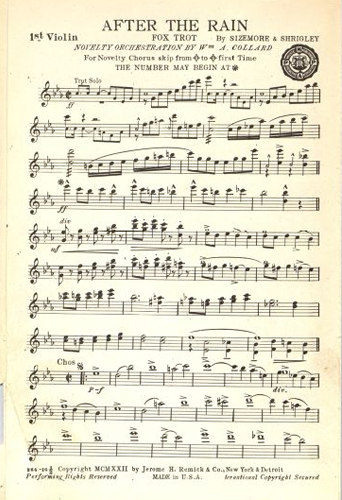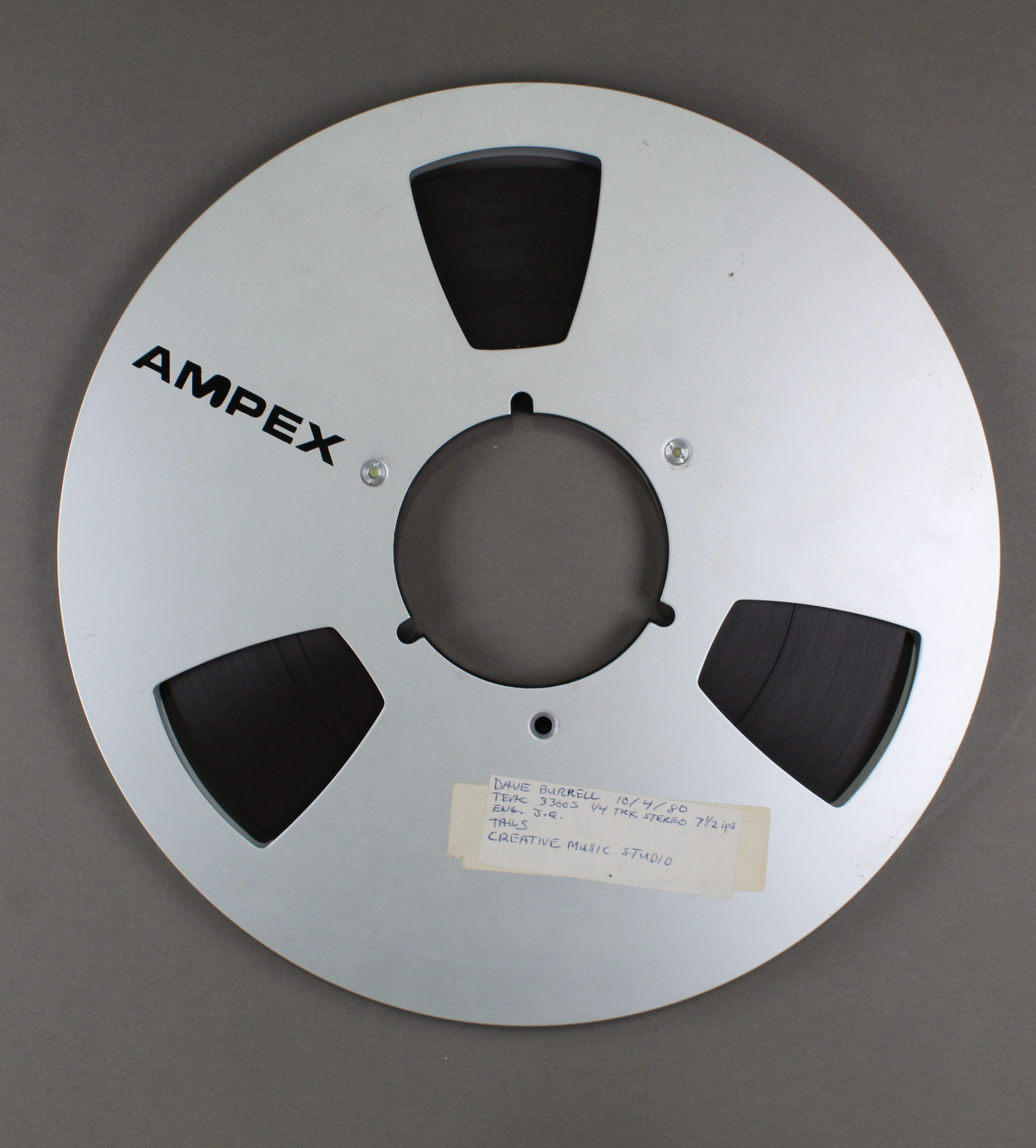
American Music at Pitt (AMP) highlights archival materials pertaining to American music collected and digitized by the University of Pittsburgh Library System. Drawing from the holdings of the Center for American Music, Theodore M. Finney Music Library, and Archives & Special Collections, AMP includes music manuscripts, scores, recordings, videos, correspondence, and business materials. Our collections document diverse musical genres from jazz to opera and the lives and professional activities of artists such as jazz pianist and composer Erroll Garner, opera librettists Ruth and Thomas Martin, orchestral composer Adolph M. Foerster, gospel musicians Charles and Frankie Pace, and many more.
Browse AMP’s collections pertaining to composers, performers, and institutions.
Browse music manuscripts, correspondence, sheet music, recordings, and more documenting the lives and careers of individual composers.
Browse exhibits that draw from AMP’s various collections.
 Mirskey Collection of Salon Orchestra and Silent Film Music
Mirskey Collection of Salon Orchestra and Silent Film Music
The Mirskey Collection of Salon Orchestra and Silent Film Music provides resources for scholars and orchestra conductors to reconstruct the soundtracks to silent films from the early twentieth century. The collection contains the instrumental parts for approximately 3,500 musical compositions written or arranged by Bronisław (“Nek”) Mirskey (1887–1927), a Polish violinist and conductor who worked as music director at several movie theaters across the United States between 1914 and 1927. Considered one of the experts in the field, Mirskey was known for possessing a great intuition for selecting musical pieces, considering the tastes of the local audiences, and skillfully conducting orchestras in close synchronization with film.
 Dave Burrell at Entermedia, March 3, 1979
Dave Burrell at Entermedia, March 3, 1979
On March 3, 1979, jazz pianist Dave Burrell gave a solo performance at the Entermedia Theater in New York. The concert was recorded and featured on NPR’s show Jazz Alive later that year, and the tape resided in Burrell’s personal collection until he donated his archive to Pitt in 2020. It is made publicly available here for the first time since it was played on NPR.